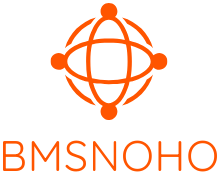Table of Contents
ToggleIn the fast-paced world of coding, developers often find themselves juggling deadlines, debugging nightmares, and endless coffee runs. It’s no wonder that productivity can sometimes feel like a mythical creature—talked about but rarely seen. But fear not! With the right hacks up your sleeve, you can transform from a frazzled coder into a productivity powerhouse faster than you can say “syntax error.”
Understanding Developer Productivity
Developer productivity involves measuring how effectively developers work in their coding environment. Significant factors impacting this productivity include work-life balance, task prioritization, and the tools employed. Prioritizing tasks helps manage workload efficiently. Developers can focus on high-impact tasks first, which enhances overall productivity.
Time management plays a critical role. By segmenting tasks into manageable chunks, developers can avoid feeling overwhelmed. Adopting techniques like the Pomodoro Technique, which suggests working in focused, timed intervals, often boosts concentration and breaks lengthy tasks into achievable parts.
Clear communication fosters a collaborative environment. Establishing open lines of communication among team members can streamline workflows. Regular stand-up meetings or status updates allow developers to align objectives and address potential roadblocks quickly.
Automating repetitive tasks increases efficiency. Tools such as CI/CD pipelines enable seamless integration and deployment, allowing developers to devote more time to coding rather than mundane processes. Leveraging automation tools reduces time spent on troubleshooting and enhances focus on core development work.
Incorporating developer-focused tools also makes a difference. Utilizing Integrated Development Environments (IDEs) with built-in debugging features accelerates the coding process. Productivity often improves with tools that support version control, allowing effortless collaboration on projects without version conflicts.
By understanding and addressing these factors, developers can create a work environment that maximizes productivity. Strategies focused on efficient task management, clear communication, and the right tools lead to tangible improvements in overall output.
Common Challenges Faced by Developers

Developers encounter various challenges that hinder productivity. Recognizing and addressing these obstacles can lead to improved efficiency and workflow.
Time Management Issues
Managing time effectively poses significant challenges for developers. Tight deadlines and numerous tasks often lead to confusion about priorities. Task prioritization plays a crucial role in enhancing work outcomes. Tools like project management software assist in organizing tasks by urgency. Effective techniques, such as time blocking, create focused work periods while minimizing distractions. Developers can break large projects into smaller, manageable tasks. Doing this prevents feelings of overwhelm and fosters completion.
Distractions and Interruptions
Distractions significantly impact a developer’s ability to concentrate. Frequent interruptions can derail focus and extend project timelines. Environments with open layouts may add to this issue, as constant chatter and movement divert attention. Implementing strategies for minimizing interruptions helps maintain productivity. Utilizing noise-canceling headphones or setting specific “do not disturb” hours can create uninterrupted work time. Moreover, encouraging clear communication about availability with team members can reduce unexpected interruptions. Addressing these challenges strengthens overall workflow and allows developers to maintain focus on high-impact work.
Essential Developer Productivity Hacks
Developers can implement several strategies to boost efficiency and focus in their work environment.
Organizing the Work Environment
A tidy workspace promotes clarity and reduces distractions. Keeping frequently used items within arm’s reach enhances workflow. Assign specific areas for coding, meetings, and breaks. A cluttered desk often leads to mental clutter, so he or she should establish a clean setup. Decorate with elements that inspire creativity, balancing aesthetics and functionality. The organization of files and projects in digital spaces is equally important; utilizing folders methodically can significantly improve access to critical resources.
Utilizing Productivity Tools
Technology offers myriad tools designed to increase productivity. Code editors with built-in features streamline development activities and reduce errors. Collaboration tools help teams share updates and address blockers rapidly. Integrating project management software enhances task prioritization, assisting developers in tracking progress effectively. Automation tools, particularly in testing and deployment, minimize repetitive tasks. Developers can save time and focus on creative problem-solving when leveraging these technologies efficiently.
Time Blocking Techniques
Time blocking allows developers to allocate specific hours for distinct tasks. Prioritizing tasks during this method ensures focus on high-impact projects throughout the day. Setting aside continuous time blocks minimizes context switching, fostering deeper concentration. During these periods, developers should silence notifications and communicate availability. Experimenting with varying block lengths can help find an optimal routine tailored to individual preferences. Regular breaks within the structure allow mental refreshment, sustaining productivity over longer periods.
Enhancing Focus and Concentration
Developers can boost their focus and concentration through targeted strategies that reduce distractions and enhance mental clarity.
Mindfulness Practices
Mindfulness practices help improve focus by promoting present-moment awareness. Techniques like meditation and deep-breathing exercises can significantly reduce stress and enhance concentration levels. Engaging in short sessions helps reset the mind, thereby increasing productivity during coding intervals. Regularly setting aside time for mindfulness can foster a calmer work environment, ultimately leading to better task prioritization. Developers might consider using apps that provide guided meditations for structure and consistency. Scheduling these practices alongside intense work periods ensures a balanced workflow.
Setting Boundaries
Setting boundaries is vital for maintaining concentration in a fast-paced coding environment. Clearly communicating work availability with teammates minimizes unexpected interruptions. A dedicated workspace free from distractions lends itself to a more focused atmosphere. Establishing specific hours for coding solidifies time management and creates uninterrupted blocks of productivity. Employing tools that signal moments of deep work can also help colleagues respect focus periods. By prioritizing personal limits, developers safeguard their productivity and efficiency while remaining collaborative.
Continuous Learning and Improvement
Continuous learning plays a crucial role in developer productivity. Engaging in regular training sessions enhances skillsets and keeps developers updated on industry trends. Participating in online courses can also provide exposure to new technologies and frameworks, fostering innovation.
Improvement stems from evaluating personal and team performance. Analyzing completed projects helps identify strengths and areas for growth. Seeking feedback from peers leads to valuable insights, enabling developers to refine their approach and enhance efficiency.
Networking with fellow professionals contributes to knowledge expansion. Attending conferences or meetups creates opportunities to share experiences and gain new perspectives. Collaborating on open-source projects offers practical experience and strengthens community ties.
Setting aside time for self-study aids in mastering emerging tools and languages. Allocating specific hours for learning prevents the oversight of professional development amidst tight schedules. Developers can utilize platforms like GitHub or Codecademy to explore live coding examples and exercises.
Utilizing documentation is another effective strategy. Regularly consulting documentation not only resolves issues but also deepens understanding of tools and frameworks. Staying familiar with best practices can prevent pitfalls and streamline workflows.
Implementing pair programming increases engagement and accelerates knowledge transfer. By working alongside a colleague, developers can learn new techniques and strategies directly. This cooperative approach leads to shared problem-solving and boosts overall project output.
Incorporating a growth mindset solidifies learning habits. Embracing challenges reaps benefits in problem-solving skills and adaptability. Recognizing that failures contribute to improvement fosters resilience, empowering developers to tackle complex obstacles confidently.
Focusing on continuous learning and improvement ultimately enhances productivity and drives innovation in the coding environment. Prioritizing development ensures that developers stay competitive and relevant in an ever-evolving tech landscape.
Developers can unlock their full potential by implementing targeted productivity hacks. By prioritizing tasks and managing time effectively, they can tackle challenges with greater ease. Creating an organized workspace and utilizing the right tools streamlines workflows and enhances collaboration.
Incorporating mindfulness practices and setting clear boundaries fosters a focused environment, while continuous learning keeps skills sharp and relevant. By embracing these strategies, developers not only boost their productivity but also cultivate a more satisfying and sustainable work experience. Adapting to these methods can lead to long-term success in the fast-paced tech industry.







